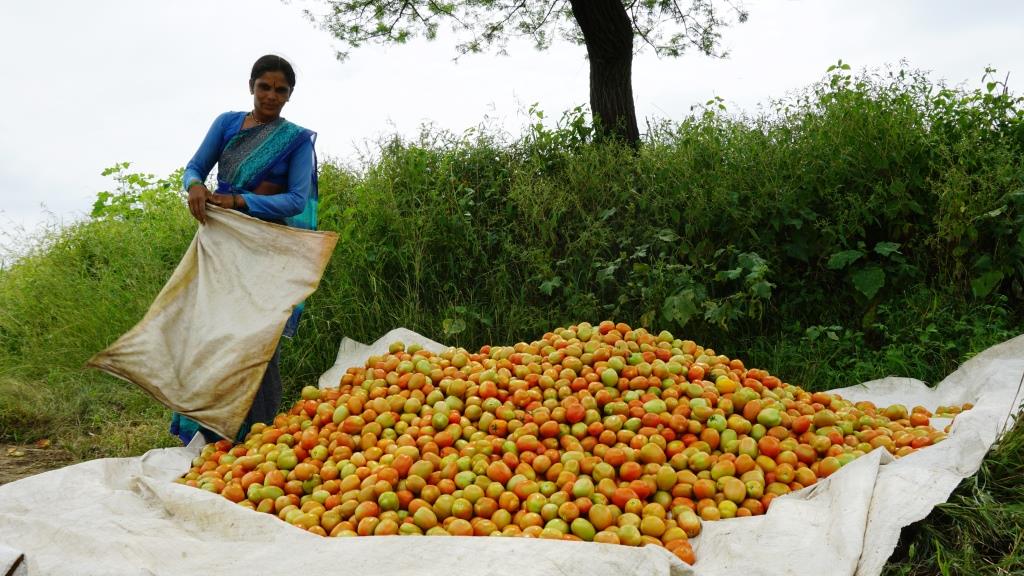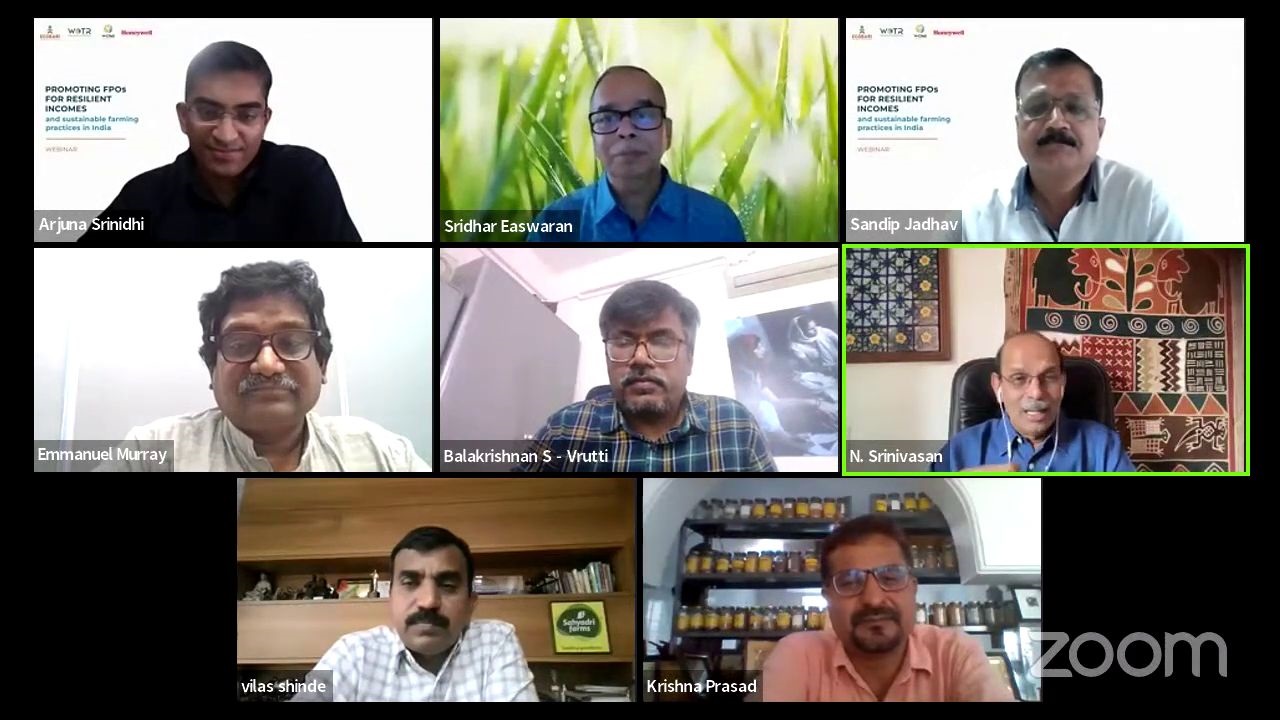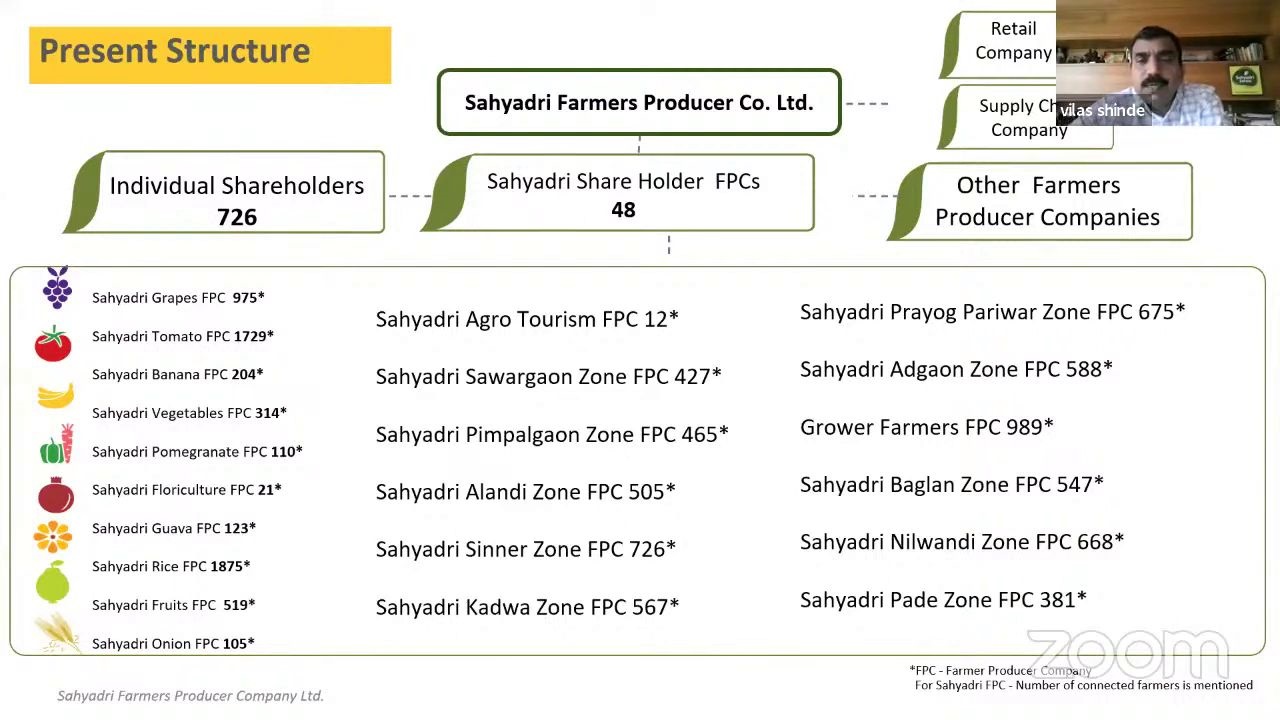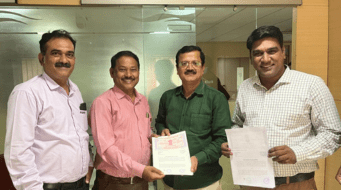by Arjuna Srinidhi and Anukriti Shaw
Key messages from the webinar:
- Access to finance has improved in recent years, however for FPOs in the initial stages of establishment, the quantum of capital available is still a challenge
- Ensuring farmers are getting back a share of profits is vital to ensure the loyalty of primary stakeholders in the FPO
- A key factor in many success stories is the presence of an anchor person that drives the business forward and bring stakeholders together – from farmers and buyers to investors
- Diversification in terms of crops grown and products that are marketed is important for resilient incomes
- Successful FPOs have also been those that look beyond the objective of profits and have taken on a regional development perspective and sustainable agricultural practices
- The mission of FPOs will be fulfilled only when their members post income growth – FPO profitability is incidental to the objective of member incomes.

A webinar on “Promoting FPOs for resilient incomes and sustainable farming practices in India” brought together practitioners and experts to discuss emergent challenges and opportunities related to Farmer Producer Organisations (FPOs) and establish a better dialogue between the various stakeholders. The presentations and discussions during the webinar held on Tuesday, 22nd November, included speakers from both large and small FPOs, organisations financing the operations of FPOs, and government officials. The event was organised by WOTR (Watershed Organization Trust) as a part of its ECOBARI initiative that focuses on Ecosystem-based Adaptation for Resilient Incomes. ECOBARI is a multi-stakeholder initiative that brings together institutions and individuals for the purpose of upscaling EbA practices in India.

Setting the Context
India has a sizable agriculture industry making up 56% of the workforce, mostly made up of small and marginal farmers, who are vulnerable due to low agricultural production, degrading ecosystems, and market and weather vagaries. Through their collective efforts, FPOs have the potential to benefit these agrarian communities through economies of scale and investments in efficient farming practices and post-production value chains. The moderator of the event, Mr. N. Srinivasan, Ex-CGM at NABARD, discussed the challenges experienced by FPOs at the outset. FPOs are gaining traction for the benefits and resources they provide to the farmers, such as better market access, equipment, storage facilities, and investments. The Government of India also actively promotes FPOs. FPOs do, however, encounter a myriad of challenges. Their viability is constrained by challenges in gaining access to human resources, funding and technical assistance, analysing markets and capacity building. Emmanuel Murray, Investment Director at Caspian Equity, provided context for the webinar by outlining the general situation of FPOs in India, including the challenges they face and the opportunities that may aid their success. He highlighted a few success stories, including that of Manavaram Coffee FPC in Araku Valley, the Jharkhand Women’s Self Supporting Cooperative, and Chetna Organic for organic cotton. He underscored a few problems with regard to the future, including the need for FPOs to have their farmer members’ interests as their prime concern, long-term sustainability, maintaining the cooperative nature, and balancing social and corporate interest.
Success Stories of FPOs
FPOs represented by Mr. Vilas Shinde, Chairman of Sahyadri Farms, Mr. Krishna Prasad, Director of Sahaja Samrudha, and Ms. Anita Malage, Chairperson of Yashaswini Agro Producer Company presented evidence-based answers to many of the challenges by FPOs across the country. These FPOs succeeded in large part by diversifying their marketing strategies and the crops they grew. To mitigate their risks associated with climatic fluctuation as well as the uncertainty of market prices, Sahyadri Farms have diversified their production to include 27 varieties of grapes and 8 other horticulture crops. Speaking about the value in conserving traditional and indigenous crop varieties, Mr. Krishna Prasad spoke about how Sahaja Samrudha has helped conserve over 1000 varieties of rice and 150 varieties of millets.The CEO of Sahaja Samrudha, Mr. Somesh, underscored the challenges they encountered in the first four years before they could start to turn a profit. “Today Sahaja Samrudha is in a position to provide farmers a premium price for their products, and also a share of profits made through our marketing initiatives” said Mr Somesh.Ms. Anita Malage shared an insightful account of how her company, which has 1,400 female shareholders and farmers, manages a range of products, including tur, jowar, channa, vegetables, and fruits. She also emphasised the various developmental initiatives carried out by her organisation, such as the construction of toilet facilities under the Swachh Bharat Abhiyan and the provision of skill-development programmes for women in non-agricultural fields, such as opening a beauty salon, fashion designing, computer literacy, etc.

Panel Discussion on how FPOs can integrate resilient incomes and sustainable farming practices
The panel discussion, which featured the above FPO representatives as well as Balakrishnan S (CEO of Vrutti) and Sridhar Easwaran (Head, Samunnati Foundation), offered insightful conversation and important takeaways for FPOs, including the necessity of considering FPO resilience from different perspectives. Mr. Balakrishnan discussed how Vrutti urges FPOs to have at least two to three sources of revenue, particularly attempting to include a mixed crop-livestock system that generates income from dairy. While conceding that it can be challenging for new FPOs to obtain capital, Mr. Easwaran talked about how many can begin by taking out smaller loans from non-banking finance corporations (NBFCs), and then gradually move up to larger loans once they have established a track record. In summarising the discussions and reflecting on the preceding presentations, Emmanuel Murray, reiterated how important it was for new FPOs to have an anchor person who can undertake the leadership role and move the organisation forward. Taking a long term perspective on resilience, Mr Murray added that “Successful FPOs have also been those that look beyond the objective of profits and have taken on a regional development perspective and sustainable agricultural practices”.
In his closing remarks, Srinivasan stated that FPOs are the new age institutions that can protect small holder farmers interests. FPOs must prioritise member relationships that foster loyalty, effective pricing and procurement strategies for aggregation, the capacity to make business decisions that consider all relevant financial factors, digitalization for efficient account and record keeping, and striving for better member value if they are to thrive and prosper. He concluded saying that “it is not the surpluses that FPOs earn, but the surpluses they create in their members hands that matter in mission fulfilment”.
[This webinar was supported by Honeywell Hometown Solutions India Foundation]
Related links:
1) For more information on ECOBARI, please visit: https://wotr.org/ecobari/
2) Webinar recording: https://youtu.be/LICXAOW3QHM
3) ECOBARI launch blog: https://wotr.org/2022/02/23/ecobari-upscaling-ecosystem-restoration-through-collective-action/





